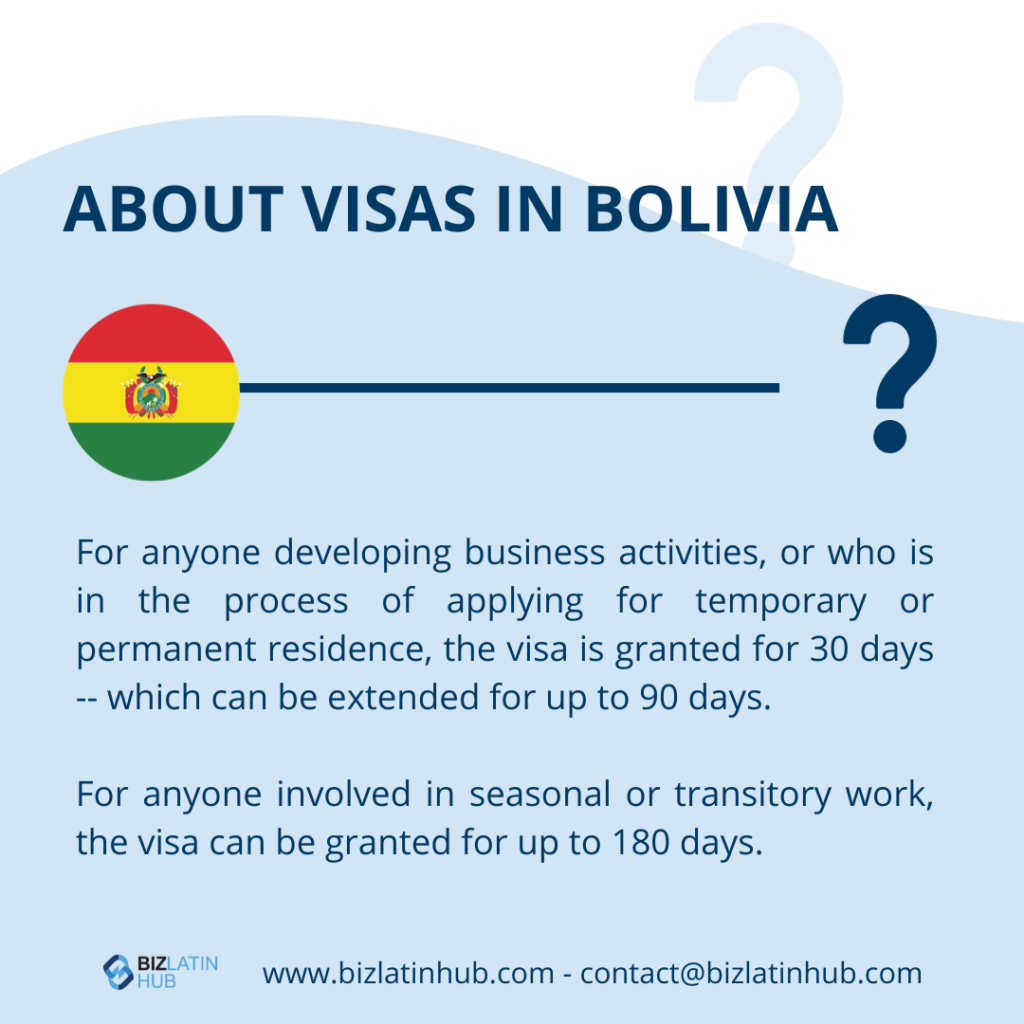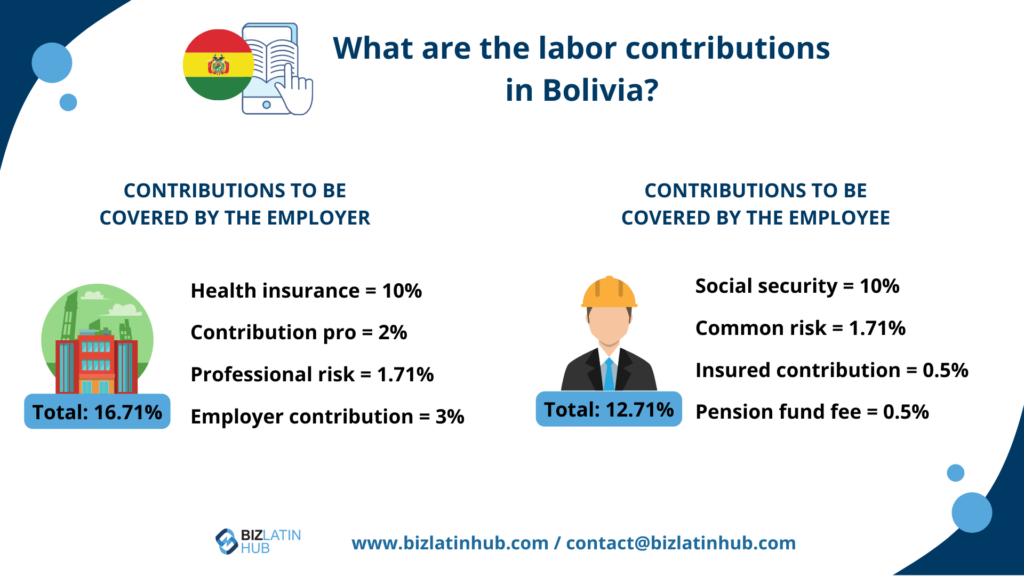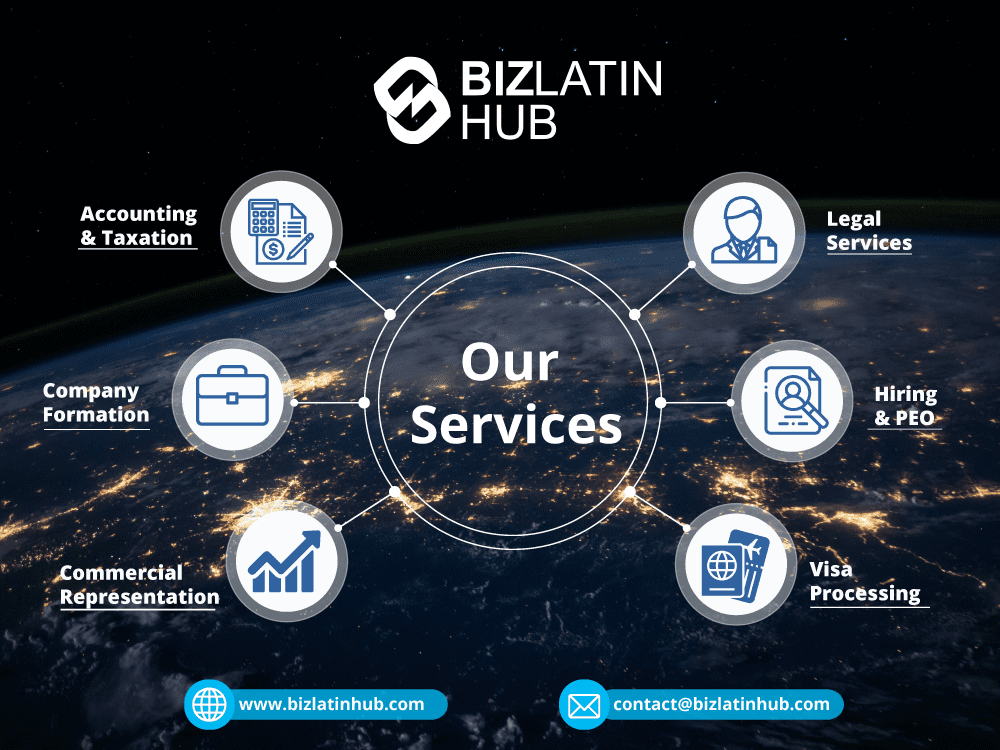Anyone planning to enter the Bolivian market is likely to need to secure a business visa in Bolivia, be that for themselves or for someone being sent to oversee the establishment or operations of the company.
A business visa in Bolivia is technically called a multiple visa, which will be granted for a one-year period and can be renewed for a similar period.

While Bolivia is not the most fashionable investment destination in Latin America and the Caribbean, it offers a great deal of opportunities, with a number of under-exploited markets and sectors ripe for capital injection.
Bolivia has seen considerable growth in recent years, with gross domestic product (GDP) increasing more than four-fold between 2005 and 2019. While the COVID-19 pandemic affected the economy in 2020, the World Bank has predicted that it would bounce back considerably, registering growth of 5.5% by the end of 2021.
Bolivia’s fossil fuel deposits have traditionally been one of the biggest draws for investment, however the country also sits on sizable reserves of lithium, ores, and precious metals. Beyond that, Bolivia is well-known for having a large agricultural sector, while the manufacturing sector consistently contributes more than 10% of GDP.
SEE ALSO: Lawyer in Bolivia: Find the Right Corporate Legal Firm
Of note for doing business in Bolivia is the fact that, according to a recent report, it has the second-highest rate of English proficiency among non-English speaking countries in Latin America and the Caribbean.
Bolivia is also a founding member of the Andean Community of Nations, a regional association that includes Colombia, Ecuador, and Peru, which has been implementing a series of measures to deepen integration that are beneficial for doing business.
Meanwhile, the country is awaiting formal acceptance to become a member of the Southern Common Market (Mercosur) — 30-year-old economic association that includes Argentina, Brazil, Paraguay, and Uruguay.
All of this adds up to make the Bolivian market an attractive destination for investment, for which securing a business visa in Bolivia is important.
Read on to find out more about Bolivia’s multiple visa, or go ahead and contact us now to discuss how we can support you with market entry and doing business in this South American country.
Table of Contents
Requirements for a multiple visa in Bolivia
The multiple visa allows multiple entries into Bolivia throughout its period of validity and is the most common type of visa applied for by foreign investors seeking a business visa in Bolivia.
To secure a multiple visa, foreigners must provide a variety of documents, and pay a visa processing fee of $200 (all figures in USD).
To get a multiple visa in Bolivia, you will need to present the following documentation:
- A completed visa application sworn declaration form
- A certificate of good conduct issued by Interpol
- A passport that is valid for at least six months
- A yellow fever vaccine certificate, and any other health certificate that is applicable (this can be based on which country you are entering Bolivia from)
- Recent passport-style headshot photographs
- Proof of payment of the visa.
The processing time for a multiple visa in Bolivia is approximately 14 business days.
Other options for investors seeking a business visa in Bolivia
Beyond the multiple visa, another type of visa that anyone seeking a business visa in Bolivia might consider is a special purpose visa, which allows short visits of between 30 and 180 days, based on the type of activity.
For anyone developing business activities, or who is in the process of applying for temporary or permanent residence, the visa is granted for 30 days — which can be extended for up to 90 days. For anyone involved in seasonal or transitory work, the visa can be granted for up to 180 days.
The cost of a special purpose visa varies based on the length of the visa, with up to 30 days costing $60, up to 90 days costing $130, and up to 180 days costing $1450.
Temporary and permanent residence also represent alternative options for anyone in need of a business visa in Bolivia, with additional documentation required compared to the multiple visa and special purposes visa, including proof of financial solvency.
Costs associated with residency permits are also based on their length, with a one year residency permit costing $330, while a two year permit costs $430, and a three year permit costs $535.

Biz Latin Hub can assist you in Bolivia
At Biz Latin Hub, we can assist you securing a business visa in Bolivia — be that a multiple visa or any other type, according to your needs. Our locally based team of corporate support experts has extensive experience working with foreign investors in Bolivia, while our comprehensive portfolio allows us to provide tailored packages of integrated back-office services to suit every need.
Our portfolio includes company formation, accounting & taxation, legal services, due diligence, hiring & PEO, and visa processing, meaning we can support every aspect of your market entry and ongoing operations in Bolivia.
We also have teams in 15 other markets around Latin America and the Caribbean, and we specialize in multi-jurisdiction market entry.
Contact us today to find out more about how we can support you doing business in Latin America and the Caribbean.
Or read about our team and expert authors.

The information provided here within should not be construed as formal guidance or advice. Please consult a professional for your specific situation. Information provided is for informative purposes only and may not capture all pertinent laws, standards, and best practices. The regulatory landscape is continually evolving; information mentioned may be outdated and/or could undergo changes. The interpretations presented are not official. Some sections are based on the interpretations or views of relevant authorities, but we cannot ensure that these perspectives will be supported in all professional settings.